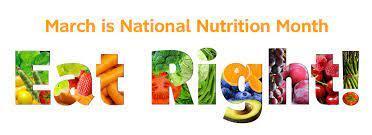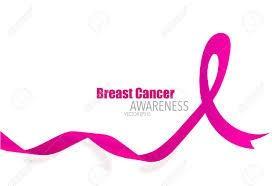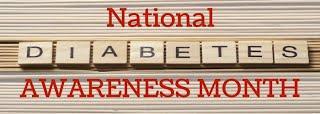Health Observances

January:

Cervical Health Awareness Month
The United States Congress designated January as Cervical Health Awareness Month. Nearly 13,000 women in the United States are diagnosed with cervical cancer each year, but the disease is preventable with vaccination and appropriate screening (Pap and HPV tests).
see more: http://www.nccc-online.org/hpvcervical-cancer/cervical-health-awareness-month/
February
 American Heart Health Month
American Heart Health Month Heart disease is the leading cause of death for both men and women in the United States. The good news? It is also one of the most preventable. Making heart-healthy choices, knowing your family health history and the risk factors for heart disease, having regular check-ups and working with your physician to manage your health are all integral aspects of saving lives from this often silent killer.

MARCH
A healthy diet helps children grow and learn. It also helps prevent obesity and weight-related diseases, such as diabetes.
Make half of what is on your child's plate fruits and vegetables To give your child a nutritious diet:
- Choose healthy sources of protein, such as lean meat, nuts, and eggs
- Serve whole-grain breads and cereals because they are high in fiber. Reduce refined grains.
- Broil, grill, or steam foods instead of frying them
- Limit fast food and junk food
- Offer water or milk instead of sugary fruit drinks and sodas

Did you know that every one out of seven children in the U.S has experienced physical and sexual abuse? During this month, as well as the whole year, citizens are encouraged to raise the issue of child abuse and the well-being of children and families around the country.
MAY
“Toget her for Mental Health.”
her for Mental Health.”
 her for Mental Health.”
her for Mental Health.” August 2022: National Immunization Awareness Month
Immunization, or vaccination, helps prevent dangerous and sometimes deadly diseases. Immunization isn’t just for kids — to stay protected against serious illnesses like the flu, measles, and pneumonia, adults need to get vaccinated too.

September 2017: National Childhood Obesity Awareness Month
One in 3 children in the United States are overweight or obese. Childhood obesity puts kids at risk for health problems that were once seen only in adults, like type 2 diabetes, high blood pressure, and heart disease.
Get active outside: Walk around the neighborhood, go on a bike ride, or play basketball at the park.
Limit screen time: Keep screen time (time spent on the computer, watching TV, or playing video games) to 2 hours or less a day.
Make healthy meals: Buy and serve more vegetables, fruits, and whole-grain foods.
For more information go to https://www.nhlbi.nih.gov/health/educational/wecan/
Limit screen time: Keep screen time (time spent on the computer, watching TV, or playing video games) to 2 hours or less a day.
Make healthy meals: Buy and serve more vegetables, fruits, and whole-grain foods.
For more information go to https://www.nhlbi.nih.gov/health/educational/wecan/

October 2017:
 Breast cancer is the second most common kind of cancer in women. About 1 in 8 women born today in the United States will get breast cancer at some point. The good news is that many women can survive breast cancer if it’s found and treated early.
Breast cancer is the second most common kind of cancer in women. About 1 in 8 women born today in the United States will get breast cancer at some point. The good news is that many women can survive breast cancer if it’s found and treated early. A mammogram – the screening test for breast cancer – can help find breast cancer early when it’s easier to treat.
If you are a woman age 40 to 49, talk with your doctor about when to start getting mammograms and how often to get them.
If you are a woman age 50 to 74, be sure to get a mammogram every 2 years. You may also choose to get them more often.
Talk to a doctor about your risk for breast cancer, especially if a close family member of yours had breast or ovarian cancer. Your doctor can help you decide when and how often to get mammograms.
November 2017:

Diabetes is one of the leading causes of disability and death in the United States. It can cause blindness, nerve damage, kidney disease, and other health problems if it’s not controlled.
One in 11 Americans have diabetes — that’s more than 29 million people. And another 86 million adults in the United States are at high risk of developing type 2 diabetes.
People who are at high risk for type 2 diabetes can lower their risk by more than half if they make healthy changes. These changes include: eating healthy, increasing physical activity, and losing weight.
One in 11 Americans have diabetes — that’s more than 29 million people. And another 86 million adults in the United States are at high risk of developing type 2 diabetes.
People who are at high risk for type 2 diabetes can lower their risk by more than half if they make healthy changes. These changes include: eating healthy, increasing physical activity, and losing weight.
December 2017:
National Handwashing Awareness Week
The 4 Principles of Hand Awareness were endorsed by the American Medical Association and American Academy of Family Physicians in 2001.
- Wash your hands when they are dirty and before eating.
- Do not cough into hands.
- Do not sneeze into hands.
- Above all, do not put your fingers in your eyes, nose or mouth!
Check out Henry the Hand for tips on handwashing. https://www.henrythehand.com/
National Influenza Vaccination Week
The best way to prevent seasonal flu is to get vaccinated every year.
https://www.cdc.gov/flu/prevent/index.html
The best way to prevent seasonal flu is to get vaccinated every year.
https://www.cdc.gov/flu/prevent/index.html